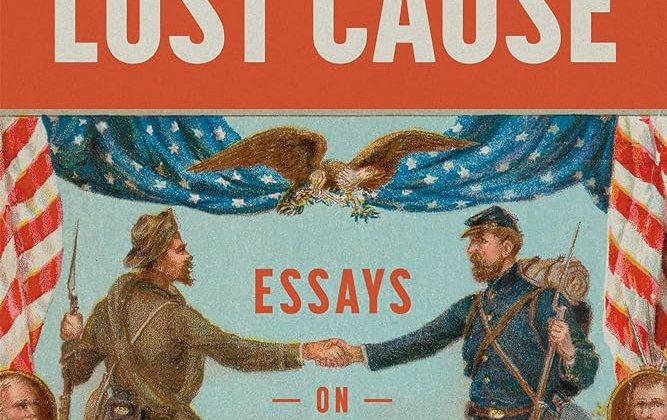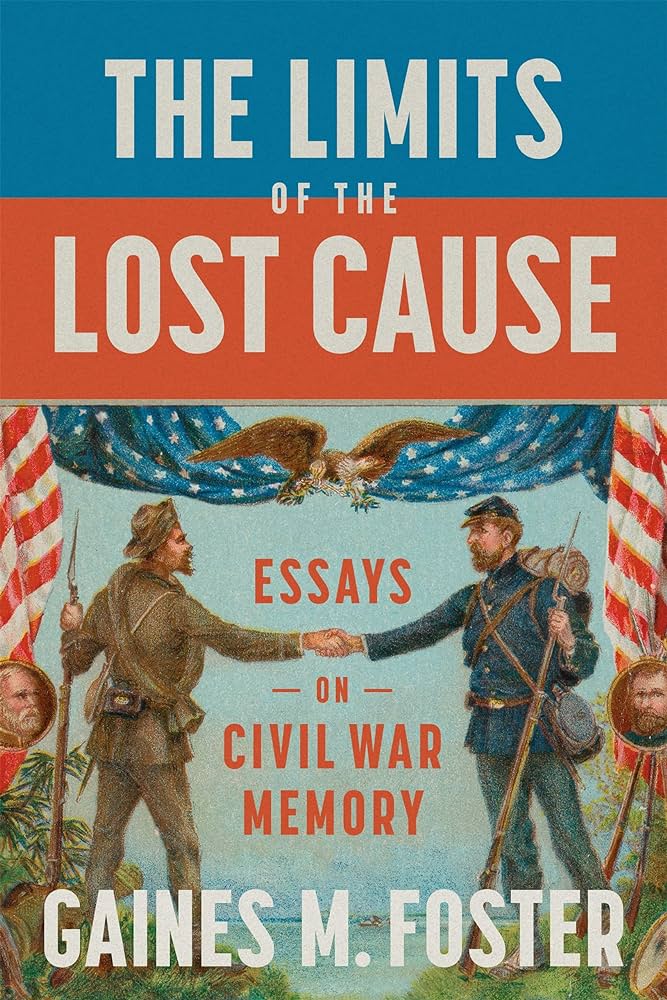

Gaines M. Foster is Murphy J. Foster Professor of History Emeritus at Louisiana State University. This interview is based on his new book, The Limits of the Lost Cause: Essays on Civil War Memory (LSU Press, 2024).
JF: What led you to write The Limits of the Lost Cause?
GF: I had published a book and articles on the Lost Cause some time ago, gone on to other research interests, and more recently returned to the topic of Civil War memory. I was particularly struck by how many pundits tried to explain current political divisions as a continuation of the Civil War—and how wrong I think that is. It ignores the extent of sectional reconciliation and grants the Lost Cause more continuing influence than it deserves.
JF: In 2 sentences, what is the argument of The Limits of the Lost Cause?
GF: The Limits of the Lost Cause includes nine independent but interrelated essays that provide an overview of historians’ interpretations of the Lost Cause and challenges both an older view of a South shaped by guilt and defeat as well as a newer one that it is still fighting the Civil War. It analyzes various topics including how the Civil War got its name, Robert E. Lee as an American hero, images of white Protestant nationalism in Birth of a Nation and the 1920s Ku Klux Klan, and the recent debate over flying the Confederate battle flag.
JF: Why do we need to read The Limits of the Lost Cause?
GF: To better understand Civil War memory and its influence on American history and society—and the limits of that influence. At the same time, I think, Limits of the Lost Cause speaks to our current divide, showing how it results not from a continuing Civil War, but a very different regional divide rooted in both socio-economic changes and the persistence of racism as a national, not just a southern phenomenon. I also hope the various essays are illuminating and interesting. Why do we call it the Civil War instead of the Rebellion or the War Between the States? Where does the fiery cross of the KKK come from? Those sorts of things.
JF: Why and when did you become an American historian?
GF: In the sixth grade when I got “historian” as a spelling word my teacher said, “how appropriate.” But I only began to think about being a historian in college. In the midst of the changes in the late 1960s, I wrestled with the contradictions between American values and our society’s, especially the South’s, injustices. I thought understanding the past would help Americans and southerners create a better future. When I finished college, I started graduate school in history and found the study of history to be intellectually challenging, incredibly rewarding–and even more fun than I expected. I still wrestle with how to write and teach history in a way that provides a proper balance between the accomplishments and failures in the American past.
JF: What is your next project?
GF: I’m still thinking about that, but it seems fair having been critical of how society and historians have looked at Civil War memory, I should offer my own view. So, I am hoping to write a book that provides an overview of the development of Civil War memory: “What Americans think about the Civil War —and what they should.”
JF: Thanks, Gaines!